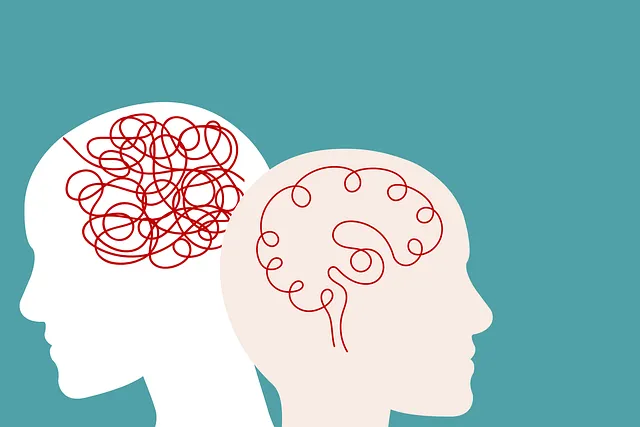Trauma from events like accidents or violence has lasting effects on individuals and communities, impacting mental wellness and daily life. Services promoting mental wellness, including therapy at Kaiser in Littleton, play a vital role through specialized care and techniques like journaling and stress management. Trained therapists at Kaiser provide pivotal trauma support using evidence-based practices such as CBT and EMDR, helping clients develop coping mechanisms and gain insights into trauma's impact. They also offer group therapy, risk management planning, and holistic approaches to comprehensive care. When comparing services, residents often ask "Does Kaiser have good therapists?" with answers focusing on provider qualifications, specialized training, and evidence-based practices. Accessing support in Littleton is convenient through organizations like Kaiser Permanente, community centers, and mental health non-profits offering workshops and personalized risk assessments.
Trauma support services are vital for individuals navigating the aftermath of distressing events. This article explores various aspects of trauma care, from understanding its profound impact on mental health to evaluating service quality between established providers like Kaiser and local practices. We delve into the critical role therapists play, effective training techniques, and accessible resources for those seeking help in Littleton. Discover if Kaiser’s therapists measure up and learn how to access quality trauma support.
- Understanding Trauma and Its Impact
- The Role of Therapists in Support Services
- Evaluating Quality Care: Kaiser vs. Local Providers
- Accessing Trauma Support: Resources for Individuals
- Training and Techniques for Effective Therapy
Understanding Trauma and Its Impact

Trauma, a profound and often hidden experience, leaves an indelible mark on individuals and communities alike. It stems from various sources, including severe accidents, violence, or life-threatening situations, triggering intense emotions and memories that can disrupt one’s sense of safety and well-being. Understanding trauma is the first step in providing effective support. Many people in Littleton turn to places like Kaiser for therapy, seeking professionals who can offer specialized care.
The impact of trauma extends beyond the immediate event, affecting mental wellness and daily functioning. It can manifest as flashbacks, nightmares, heightened anxiety, or difficulty regulating emotions. This is where services that promote mental wellness become crucial. Journaling exercises and stress management techniques are powerful tools to help individuals process traumatic experiences and develop healthy coping mechanisms. By providing guidance on stress reduction methods, these services empower people to take control of their emotional well-being, fostering resilience and a sense of calm amidst the chaos.
The Role of Therapists in Support Services

In the realm of trauma support services, therapists play a pivotal role in providing care and guidance to individuals who have experienced traumatic events. At Littleton’s Kaiser, the quality of therapists is often a topic of interest for those seeking help. Trained professionals are equipped with diverse therapeutic approaches to assist clients in processing their traumas effectively. They facilitate healing by creating safe spaces where individuals can openly discuss their experiences, emotions, and memories without judgment. Through techniques such as cognitive behavioral therapy (CBT) and eye movement desensitization and reprocessing (EMDR), therapists help clients develop coping mechanisms and gain insights into their trauma’s impact on their lives.
Beyond individual therapy sessions, these professionals contribute to a holistic support system by offering group therapy sessions that foster social skills training and conflict resolution techniques. By engaging in group settings, individuals can build resilience, share experiences, and learn from one another. Moreover, therapists at Littleton’s Kaiser are adept at implementing risk management planning for mental health professionals, ensuring the safety of both clients and practitioners during the therapeutic process. This comprehensive approach to trauma support services not only addresses immediate needs but also equips individuals with long-term coping strategies to navigate life’s challenges.
Evaluating Quality Care: Kaiser vs. Local Providers

When it comes to evaluating trauma support services, a comparison between large healthcare organizations like Kaiser and local providers is essential for residents of Littleton. For instance, many wonder, “Does Kaiser have good therapists in Littleton?” The answer often lies in examining the quality of care provided by each entity, focusing on key areas such as therapist qualifications, specialized training, and the availability of evidence-based practices.
Local providers may offer unique advantages, including deeper understanding of the community’s needs and cultural sensitivity in mental healthcare practice. They are often more attuned to diverse populations’ specific challenges and can provide tailored support. In contrast, Kaiser, with its extensive resources, might have a broader range of specialists, including therapists trained in mindfulness meditation for stress management—a popular approach to trauma healing. Ultimately, the choice between Kaiser and local providers should be informed by individual needs, preferences, and access to specialized services like Cultural Sensitivity in Mental Healthcare Practice and Mindfulness Meditation.
Accessing Trauma Support: Resources for Individuals

Accessing trauma support is a crucial step towards healing and recovery for individuals who have experienced traumatic events. For those in or around Littleton, resources are readily available to help navigate through challenging times. One notable provider is Kaiser Permanente, known for its comprehensive healthcare services and, indeed, having good therapists on staff who specialize in trauma support.
Individuals seeking assistance can explore various options, including Stress Management Workshops organized by local community centers and mental health non-profits. These workshops provide valuable tools for coping with stress and anxiety related to traumatic experiences. Additionally, self-awareness exercises tailored for trauma survivors are gaining popularity as effective ways to enhance emotional resilience. For a thorough assessment of one’s mental health status, especially in light of potential trauma, it is advisable to consult professionals who conduct risk assessments, ensuring personalized care and safety during the healing process.
Training and Techniques for Effective Therapy

In providing trauma support services, training and techniques play a pivotal role in ensuring effective therapy. Littleton’s Kaiser, for instance, is renowned for its robust therapist training programs, emphasizing evidence-based practices like Cognitive Behavioral Therapy (CBT) and Eye Movement Desensitization and Reprocessing (EMDR). These approaches help clients process traumatic memories, reduce symptoms of post-traumatic stress disorder (PTSD), and foster mental wellness.
Beyond traditional techniques, Public Awareness Campaigns Development has been instrumental in normalizing conversations around trauma. By increasing public understanding of mental health issues, these campaigns encourage people to seek support without stigma. This, coupled with accessible Trauma Support Services, can significantly improve outcomes for individuals dealing with traumatic experiences. Kaiser’s commitment to these initiatives ensures that patients receive not just good therapy but also comprehensive care within a supportive environment.
In conclusion, trauma support services play a vital role in helping individuals navigate and overcome their experiences. As discussed, understanding trauma is essential, and therapists trained in specialized techniques are key to effective care. When evaluating options, like comparing Kaiser to local providers in Littleton, it’s clear that access to quality therapy matters greatly. Individuals seeking support should explore available resources, ensuring they receive the best care possible. Continuous training and innovation in trauma therapy ensure better outcomes for those who need it most.






